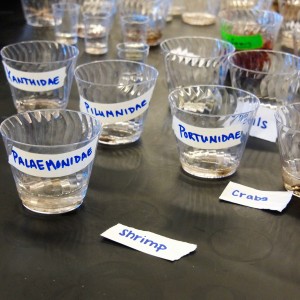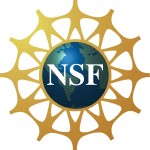
Organisms extracted from one cubic foot of marine habitat are sorted into families and species, carefully photographed, and returned to the wild before data are entered online.
Every student has measurable biodiversity underfoot, within walking distance. With the right tools, they could participate in research and monitoring projects that could use their contributed observations on a regional or national scale to answer questions about sustainability.
The Biocube project broadens the scope of citizen science by promoting observation of a wider array of organisms, fostering an ecosystem view rather than a species-specific perspective, and providing technological infrastructure to increase its scientific and educational impact. This project aims to provide greater public access to STEM learning experiences while laying the groundwork for data exchange as a step on the way to increasing the scientific impact of citizen science data. Teachers interested in requesting a Biocube kit for classroom use can contact our Smithsonian partners at biocube@si.edu.
The Biocubes project involves numerous partners and collaborators working to recruit and train science teachers to use biocubes in their classrooms, build the data infrastructure to alert subscribers to newly available data matching their interests and inform data creators about the use of the data they contribute, and understand the needs of stakeholders in this data sharing ecosystem.
Our initial phase of research is exploring the role that the iNaturalist social networking platform plays as a third-party provider of community-based data validation services and data management infrastructure for smaller projects like Biocubes. We are interested in learning whether utilizing platforms like iNaturalist provide additional value for scientific research that justify the tradeoffs inherent in adapting scientific protocols and participation processes to use available tools. There is a clear need for such platforms, but the citizen science practitioner community does not yet have a good understanding of how the platform impacts the project design and outcomes, and by extension, what additional platforms may be needed to adequately support citizen science more widely.
 This project is supported by the U.S. National Science Foundation, CCF-1442668, “CyberSEES: Type 1: Collaborative Research: Infrastructure and Technology Supporting Citizen Science Data Usage and Distribution for Education and Sustainability.”
This project is supported by the U.S. National Science Foundation, CCF-1442668, “CyberSEES: Type 1: Collaborative Research: Infrastructure and Technology Supporting Citizen Science Data Usage and Distribution for Education and Sustainability.”
